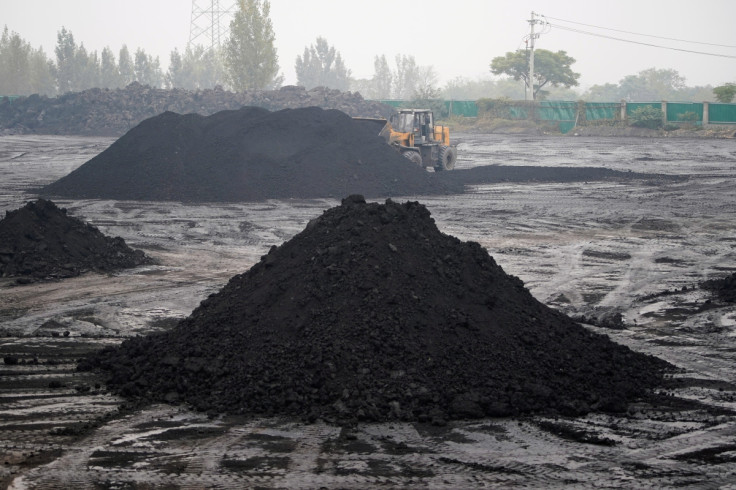Column-Coking Coal Narrows The Gap On Thermal As China Reopens: Russell

The premium of high-grade thermal coal over coking coal in Asia is shrinking as China's re-opening and ending of a ban on imports from Australia powers a rally for coking coal, a key steelmaking ingredient.
Singapore-traded futures linked to the price of Australian coking coal ended at $315.67 a tonne on Monday, up 21% since the end of last year and 56% higher than the 13-month low of $203 hit in August last year.
Meanwhile, futures linked to the price of high-grade Newcastle thermal coal in Australia ended at $350.95 a tonne on Monday, down 13% from the end of last year and 23% below the all-time high of $457.80 reached in September last year.
Newcastle thermal coal futures have traded above coking coal contracts since June 1 last year - something that had not occurred previously in the history of the two contracts.
The surge in prices for thermal coal used predominantly to generate electricity came in the wake of Russia's invasion of Ukraine, which led to an energy squeeze as Europe shunned Russian natural gas and coal, and instead sought alternative supplies. Moscow calls its actions in Ukraine "a special operation".
At the same time, coking coal prices weakened as steel production outside China softened while the global economy simultaneously tried to deal with an energy crisis and the accompanying surge in inflation.
But since China's decision to loosen its strict zero-COVID policy and effectively abandon it this year, market expectations have swung to a rebound in the world's second-biggest economy, especially in steel-intensive sectors such as residential and infrastructure construction.
This has led to an increase in imports of both iron ore and seaborne coking coal.
China brought in 2.33 million tonnes of seaborne coking coal in December, according to commodity analysts Kpler, up nearly 10% from 2.12 million in November.
Seaborne coking coal imports for January are estimated by Kpler as climbing to 2.60 million tonnes, which would be the highest since September.
AUSTRALIA EXPORTS
It's worth noting that the end of Beijing's unofficial ban on coal imports from Australia has yet to show up in any meaningful way in China's imports, although there are signs that coking coal flows will resume.
However, it's unlikely that China's imports of coking coal from Australia will return any time soon to the levels seen prior to the ban. The restrictions were imposed in mid-2020 as Beijing sought to punish Australia for Canberra's call for an international investigation into the origins of COVID-19.
Australia may export about 92,000 tonnes of coal to China in January, rising to 181,000 tonnes in February, according to Kpler, with the grade likely to be coking coal from Queensland state.
Another bullish factor for coking coal is some weather-related disruptions in Australia, the world's largest shipper of this grade of the fuel.
Heavy rains in recent weeks has caused delays to the coal transport chain in Queensland. Argus reported on Monday that vessel queues are growing outside ports, with 52 ships waiting at Dalrymple Bay Coal Terminal, roughly double the average of 24 over the past year.
So far Kpler has tracked Australia coking coal exports of 9.38 million tonnes in January. While some further cargoes are likely to be assessed before the end of the month, it seems certain that the total will be down from December's 12.57 million.
This raises the possibility that coking coal prices will continue to rally, while thermal coal prices may soften as the northern winter ends.
Another factor that will come into play is the market taking the view that the energy security situation is less stressed as players adapt to the re-alignment of Russia's exports of coal, natural gas and crude oil.
(Editing by Kenneth Maxwell)
© Copyright Thomson Reuters 2024. All rights reserved.





















